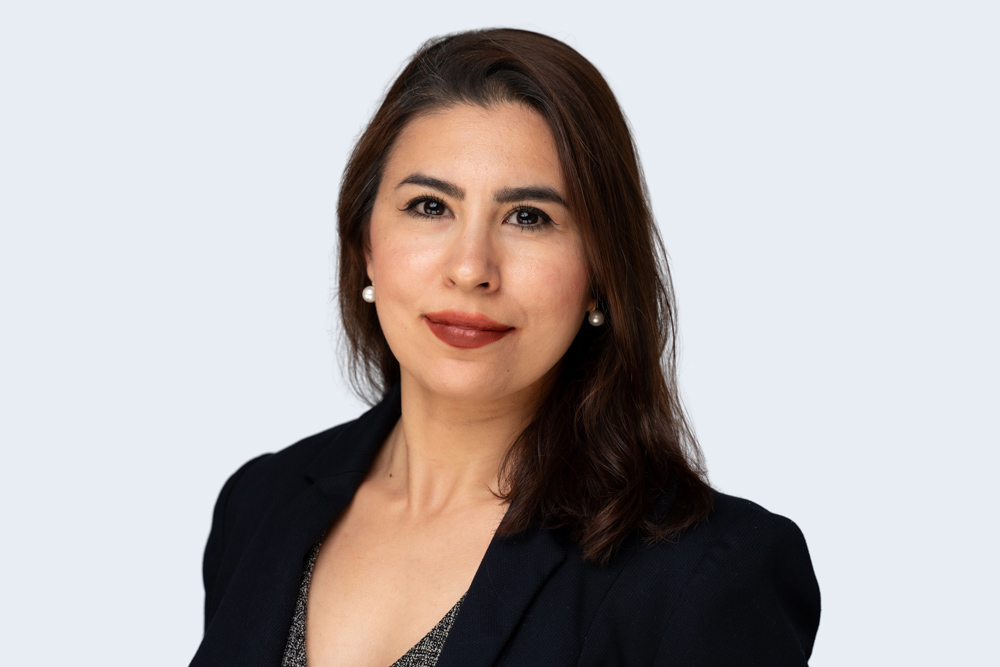About Nilufer
Nilufer is a highly experienced Court of Protection solicitor, recognised for her expertise in mental health and mental capacity law.
Nilufer helps clients navigate complex Court of Protection and Community Care matters, providing clear and compassionate legal guidance.
Nilufer specialises in cases concerning the health and welfare of individuals who lack capacity. She is passionate about helping people who are vulnerable and ensuring that their voices are heard. She is committed to protecting the rights of those who lack capacity and is regularly advocating for the subject matter, ‘P’ in complex Court of Protection proceedings through the Official Solicitor or as an Accredited Legal Representative (‘ALR’). She also represents family members and because of her experience of representing ‘P’ in the proceedings, she takes extra sensitive and collaborative approach to P’s best interests when acting for family members, with the appreciation that Court of Protection proceedings can be challenging for them.
For over a decade, Nilufer is known to undertake Court of Protection work and has provided training to professionals in the field on the Mental Capacity Act 2005. Nilufer also provides training to junior lawyers aspiring to become Court of Protection solicitors.
Notable Cases
London Borough of Hackney v SJF & Anor [2019] EWCOP 8 (12 March 2019)
Nilufer acted for P in this case by her litigation friend, the Official Solicitor. The court concluded that the magnetic factor in this matter is SJF’s need for healthcare by professionals. There was no real prospect that her healthcare needs could be met adequately or at all if she lives in her flat with her son. The court therefore decided that it would be in SJF’s best interests to live in a supported living accommodation. This case illustrates the fine balance between making decisions in light of P’s strong and consistent wishes and her best interests.
A local authority v JB (2023)
Nilufer acted for P in this case by her litigation friend, the Official Solicitor. While the other parties considered that there was no reason to doubt previous evidence which concluded that P lacked capacity to make decisions about her residence and care, Nilufer successfully sought permission to instruct an independent expert to assess JB’s capacity. The expert’s report considered that JB had capacity to make decisions about her residence and care but not to make decisions about her property and finances. JB was therefore discharged from her care placement to her home environment with a package of care, as per her wishes.
A local authority v MPH (2021)
Nilufer acted for P in this case by his litigation friend, the Official Solicitor. This case was brought to court by P’s family members seeking court’s assistance to improve P’s care arrangements. P was living in the community. The local authority argued that P was being provided with the maximum available support. Nilufer successfully argued on behalf of P that he was entitled to further provisions under the Care Act 2014 and assisted the court to make decisions in P’s best interests with a view to increasing the support available to P.
RAEJ v A local authority, LE and ME (2021)
Nilufer acted for P in this matter by her litigation friend, the Official Solicitor. This case involved complex contact arrangements concerning young P’s residence and contact arrangements with her parents, who were separated.
Panel Memberships
As an accredited member of the Law Society Mental Capacity (Welfare) Panel, Nilufer has experience acting as an accredited legal representative in welfare matters for persons who lack capacity to conduct the proceedings.
Languages
Nilufer is fluent in Turkish and has acted for several Turkish clients.
Recommendations:









